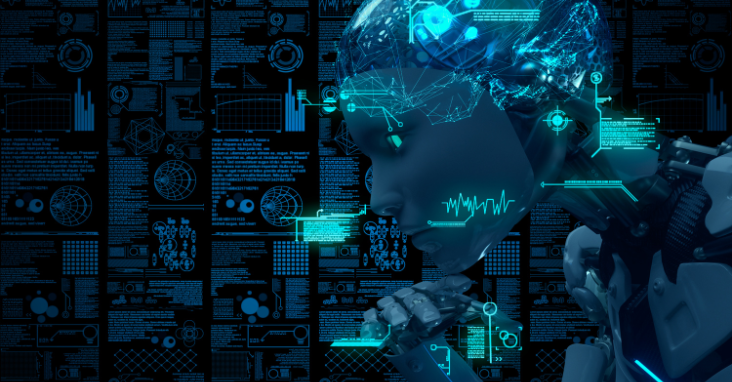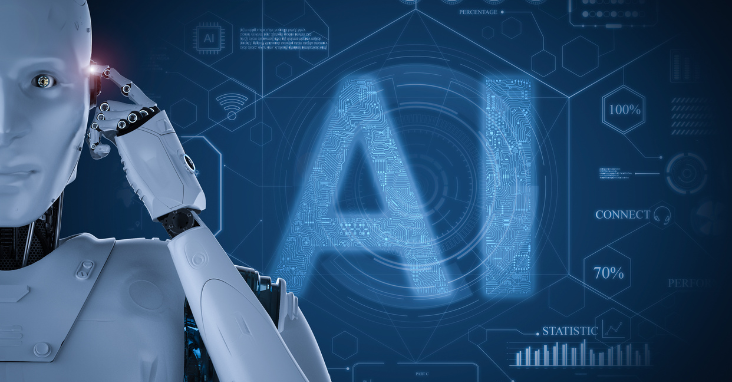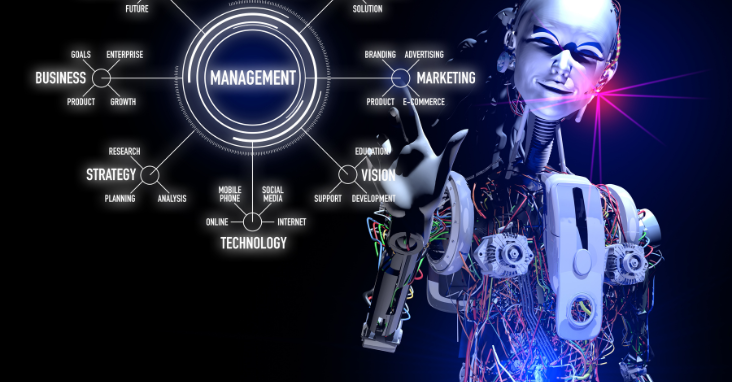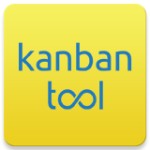If you’re reading this, you probably understand the potential impact of artificial intelligence (AI) in project management. Maybe you’re already integrating AI into your processes, or perhaps you’re looking for ways to start. Regardless, this comprehensive guide is designed to elucidate the myriad benefits, potential challenges, and steps involved in harnessing AI in your project management strategies.
AI in project management isn’t about creating an army of robots; it’s about leveraging intelligent tools that augment human decision-making, risk management, and handling of complex projects. In our data-driven world, integrating AI is no longer optional, but increasingly critical for staying ahead.
AI is used in project management to automate tasks such as scheduling, resource allocation, and risk assessment. It can also analyze data to identify patterns, make predictions, and provide insights that help in decision-making and optimizing project performance.

Understanding the Benefits of AI in Project Management
Enhanced Decision Making and Planning
The era of manually sifting through mountains of data for decision-making in projects is gradually fading away. With the advent of AI, routine tasks are being automated, freeing up managers to focus more on strategic decisions.
AI is not just about automating processes. It also offers advanced data analysis and predictive analytics, enabling us to anticipate future scenarios and make more informed decisions.
Action Item: Consider an AI tool that can automate some of your regular tasks. Start with a simple one – perhaps an AI-based scheduling tool.
Improved Efficiency and Productivity
In the project lifecycle management, resource allocation and real-time monitoring are vital for enhancing productivity and reducing costs. AI tools offer solutions in both these areas, enabling more efficient use of resources and providing instant project updates.
From streamlining communication to enhancing collaboration, AI tools are continually revolutionizing how we manage projects.
Action Item: Identify one area of your project that could benefit from real-time monitoring. Research AI tools designed for this purpose.
These are just a few benefits of integrating AI in a project management tool. The potential applications and advantages of AI are vast and can deeply impact project outcomes.
Enhanced Project Performance
AI helps in identifying and resolving issues proactively, leading to efficient time and cost management. By improving project outcomes and client satisfaction, AI has proven to be a game-changer in project performance.
Action Item: Consider incorporating AI tools into your project performance evaluation process.

Exploring the Challenges of AI in Project Management
While AI comes with undeniable advantages, it’s not without its challenges. Integrating AI into project management requires careful planning, preparation, and an understanding of potential hurdles.
Data Quality and Integration
AI systems rely heavily on data – the quality, variety, and volume of which directly influence the insights generated. Poor quality or insufficient data can lead to inaccurate or biased outcomes. Moreover, integrating data from disparate sources can present challenges due to varying formats, structures, and compatibility issues.
Change Management and Adoption
Integrating AI into existing project management processes is a significant change that can face resistance from team members due to fear or lack of understanding. Change in project management methodology, thus, is crucial to facilitate a smooth transition. This involves clear communication of the benefits, providing necessary training, and offering support throughout the adoption process.
Ethical and Bias Concerns
AI models can inadvertently perpetuate biases present in their training data, which can lead to unequal or unjust outcomes. This necessitates careful selection and scrutiny of the data used to train AI systems. It’s also essential to develop and implement ethical guidelines for AI usage to prevent misuse and protect individual privacy and rights.
Skill Gaps and Training Needs
AI’s successful implementation also hinges on the skills and knowledge of the project management team. Team members need to understand how AI tools work and how to interpret their outputs. Consequently, organizations may need to invest in training or hiring skilled personnel, posing additional challenges.
Action Item: As a project manager, you can start by auditing your current processes to identify the potential obstacles specific to your team or organization. This will help in formulating a more effective and tailor-made AI integration strategy.

Getting Started with AI in Project Management
Successfully integrating AI into project management isn’t an overnight process. It requires careful planning, evaluation, and step-by-step implementation. Here’s a guide to kick-start your AI integration journey:
Assessing Project Management Processes
Before you dive into the world of AI, take a step back and thoroughly review your existing project management processes. Understanding your current practices will help identify areas where AI could provide the most benefit, whether it’s in project scheduling, resource allocation, risk management, or communication.
Identifying AI Use Cases and Opportunities
With a clear understanding of your processes, you can identify potential AI applications. AI can be used in various aspects of project management, from automating repetitive tasks to providing predictive insights for decision-making. Identify your pain points and explore how AI could help alleviate them.
Establishing Data Collection and Management Practices
AI thrives on data, and successful AI implementation requires robust data collection and management practices. This includes determining what data to collect, how to store and secure it, and how to ensure its quality and accessibility.
Piloting AI Solutions and Proof of Concepts
Before a full-scale implementation, it’s wise to test AI solutions through a pilot project or proof of concept. This will allow you to evaluate the tool’s effectiveness, identify potential issues, and gain a better understanding of how AI can enhance your project management practices.
Action Item: Begin by conducting a detailed review of your current project management processes. Identify areas where AI could provide significant benefit and then research AI tools that could help address these areas. Start small with a pilot project to test the waters before a full-scale implementation.
Following these steps will provide a solid foundation for integrating AI into your project management practices and help ensure a successful transition to ai technology.

Essential AI Tools for Project Management Software
AI in project management isn’t just about theory; it’s about leveraging concrete tools that can transform your work. Here’s a closer look at some of the key AI tools for project management:
5.1 Project Planning and Scheduling
AI tools can also assist project managers with project planning and scheduling, helping to manage complexities and dependencies. They can automatically arrange tasks based on priority, employee availability, and project deadlines, removing a significant burden from project managers.
5.2 Resource Management and Allocation
AI-powered tools can aid in optimizing resource allocation. By assessing project needs and evaluating employee skills and availability, AI can suggest the most efficient resource distribution, thus maximizing productivity and minimizing overworking or underutilization.
5.3 Risk Assessment and Management
AI can be a powerful ally in risk assessment and management. By analyzing historical data and identifying patterns, AI can predict potential risks, thereby allowing project managers and teams to take proactive steps to mitigate these risks before they impact the project.
5.4 Communication and Collaboration
AI can also facilitate project communication and collaboration. From streamlining email communications to less project costs to facilitating team collaborations through intelligent bots, AI can lead to quicker decision-making and a more efficient work environment.
Action Item: Now that you’re aware of the potential tools, select one area where you believe your project management could most benefit from AI integration. Explore AI tools that specialize in this area, and consider testing them in a pilot project.
By understanding the capabilities of different AI tools, you can make a more informed decision about which ones will best meet your needs and enhance your project management processes.

Integrating AI into Existing Project Management Processes
The true power of AI shines when it’s seamlessly integrated into your existing project management processes. Here’s how you can make this happen:
6.1 Mapping AI functionalities to project workflows
To leverage the full potential of AI, its functionalities need to align with your project workflows. Analyze how AI capabilities can complement and enhance each step of your process, from initiation to execution and closing.
6.2 Identifying areas for automation and optimization
AI can automate many mundane and repetitive tasks, freeing up project managers to focus on more strategic aspects. Identify tasks that are ripe for automation or processes that can be optimized using AI, and prioritize these for your AI integration efforts.
6.3 Ensuring data compatibility and interoperability
AI thrives on data, but for it to work effectively, the data must be compatible with the AI systems and interoperable across various platforms. This may involve implementing new data management practices or revising your existing ones.
6.4 Gradual implementation and iterative improvement
AI integration should be gradual, with room for learning and adaptation. Start with one or two key areas where AI can have an immediate impact. Based on your experiences and results, you can then gradually expand its use.
Action Item: Create a detailed integration plan. Start by mapping AI functionalities to your project workflows, identifying tasks for automation, and ensuring data compatibility. Then, begin your gradual implementation, closely monitoring results and making adjustments as necessary.
By taking a thoughtful, step-by-step approach to AI integration, you can ensure that the transition is smooth, manageable, and brings tangible benefits to your project management practices.

Training the Project Management Team on AI
As much as AI is about technology, it’s also about people. Implementing AI tools won’t help unless your team knows how to use them effectively. Here are some steps to ensure your team is well-prepared:
7.1 Identifying AI Training Needs and Skill Gaps
Start by identifying what your team needs to learn. This might involve understanding how to use a new AI tool, how to interpret the data it produces, or how to adjust existing workflows to incorporate AI functionalities.
7.2 Providing Targeted AI Education and Resources
Based on the identified needs, provide targeted training sessions and educational resources. This might include workshops, online courses, or hands-on training with the new AI tools. It’s essential to ensure that everyone understands not only how to use the AI tools but also why they’re being used.
7.3 Encouraging Continuous Learning and Upskilling
The world of AI is constantly evolving. Encourage a culture of continuous learning, where team members are incentivized to upskill and stay updated with the latest developments in AI.
7.4 Fostering a Culture of Innovation and Experimentation
AI opens new avenues for doing things differently and more efficiently. Foster a culture that values innovation and experimentation, where team members are encouraged to explore new ways of using AI to enhance their work.
Action Item: Start by conducting a skills audit to identify the training needs of your team. Then, develop a comprehensive training plan that includes targeted education, resources for continuous learning, and strategies to foster a culture of innovation.
By investing in your team’s AI education and cultivating an atmosphere of innovation, you’ll be well-prepared to maximize the benefits of AI in your project management practices.

Measuring the ROI of AI in Project Management
To ensure your AI initiatives are delivering value to multiple users, it’s crucial to measure the return on investment (ROI). Here are some strategies to help you gauge the effectiveness of your AI integration:
8.1 Identifying Key Performance Indicators (KPIs)
Determine which KPIs will accurately reflect the impact of your AI initiatives. This might include metrics related to project completion time, budget adherence, resource utilization, or stakeholder satisfaction.
8.2 Establishing Baseline Metrics
Before implementing AI, establish baseline metrics for your chosen KPIs. This will provide a point of comparison to assess the changes and improvements brought by AI.
8.3 Monitoring and Evaluating AI-Driven Improvements
Regularly monitor your KPIs and evaluate the performance improvements delivered by AI. This ongoing analysis will provide insights into the effectiveness of your AI tools and inform any necessary adjustments or enhancements.
8.4 Calculating Tangible and Intangible Returns
While some benefits of AI—like cost savings or time efficiencies—are easily quantifiable, others—like improved decision-making or increased team morale—may be less tangible. Strive to recognize and measure both types of returns to gain a comprehensive understanding of your AI ROI.
Action Item: Define your KPIs related to AI implementation and establish baseline metrics for these. Ensure regular monitoring of these KPIs and calculate both the tangible and intangible returns to measure the overall ROI.
By measuring and monitoring your AI ROI, you can ensure that your investment in AI is delivering the anticipated value and contributing positively to your project outcomes.

Addressing Ethical Concerns in AI-Driven Project Management
AI is a powerful tool, but it also raises ethical concerns that must be carefully considered and addressed. Here are some strategies for ensuring ethical use of AI in project management:
9.1 Transparency and Explainability
AI systems should be transparent and explainable. This means being clear about how decisions are made, what data is used, and how results are derived. Transparency helps build trust in AI systems and ensures their accountability.
9.2 Mitigating Bias and Discrimination
AI systems are only as good as the data they’re trained on. If the data includes biased information, the AI can also exhibit biased behavior. Rigorous data quality control and periodic auditing of AI systems are crucial to mitigate potential bias and discrimination.
9.3 Privacy and Data Security
AI systems often process large amounts of sensitive data. Robust data privacy and security measures should be in place to protect this data and comply with relevant regulations.
9.4 Ensuring Accountability and Oversight
Even with AI automation, human oversight is necessary. Clear accountability structures should be in place to oversee AI operations and address any issues that arise.
Action Item: Conduct an ethical review of your planned AI systems. This should include examining transparency, auditing for bias, reviewing data privacy and security measures, and defining clear accountability structures.
By proactively addressing these ethical considerations, you can ensure that your use of AI in project management is not only effective but also ethical and responsible.

Future Trends of AI in Project Management
As AI continues to evolve, so too will its application in project management. Here are some trends that might shape the future of AI in project management:
10.1 Augmented Intelligence and Human-Machine Collaboration
Rather than replacing humans, AI is more likely to augment human capabilities, creating a collaborative environment where humans and machines work together, each contributing their unique strengths.
10.2 Natural Language Processing and Voice Interfaces
With advances in Natural Language Processing (NLP), voice interfaces could become a more common feature of many project management tools and software, making it even easier to update tasks, schedule events, or retrieve information.
10.3 Integration with Internet of Things (IoT) and Big Data
The integration of AI with IoT and big data could provide even more detailed insights into project performance, enabling proactive issue resolution and more precise decision-making.
10.4 Adaptive and Autonomous Project Management Systems
Future AI systems might be able to adapt to changing project conditions automatically, making decisions and recalibrating plans on their own. This could make project management even more efficient and effective.
Action Item: Stay informed about the future trends in AI for project management. Consider how these trends might affect your project management practices and how you can prepare to take advantage of these advancements.
By keeping a close eye on future trends, you can ensure that you’re well-positioned to capitalize on the ongoing evolution of AI in project management.

Staying Up-to-Date on AI Developments in Project Management
Given the rapid advancement of AI, staying up-to-date is essential. Here are some ways to keep abreast of the latest developments:
11.1 Professional Associations and Communities
Joining professional associations or communities can provide access to a wealth of knowledge and updates about the latest AI developments in project management.
11.2 Conferences, Webinars, and Workshops
Attending conferences, webinars, and workshops can provide insights into new AI technologies, methodologies, and best practices.
11.3 Industry Publications and Research Papers
Reading industry publications and research papers can help you stay informed about the latest advancements and trends in AI.
11.4 Online Forums and Social Media Channels
Online forums and social media channels are excellent resources for real-time updates and discussions about AI in project management.
Action Item: Make a plan to stay informed about AI in project management. This could include joining professional associations, attending relevant events, reading industry publications, and participating in online discussions.
By actively seeking out learning opportunities and staying engaged with the AI community, you’ll ensure that your knowledge remains current, and you’re well-prepared to leverage the latest AI advancements in your project management practices.

Learning Resources for AI in Project Management
Ready to dive deeper into AI in project management? Here are some resources to kickstart your machine learning and journey:
12.1 Online Courses and Training Programs
There are numerous online courses and training programs available that can provide a thorough understanding of AI applications in project management, from basics to advanced concepts.
12.2 Books and E-books
Several books and e-books offer in-depth insights into AI in project management. They can serve as valuable references for understanding complex concepts and exploring real-world applications of project insight.
12.3 Podcasts and Webcasts
Listening to podcasts and webcasts can be an excellent way to keep up with recent trends, hear expert insights, and learn about practical applications of AI in project management.
12.4 Open-Source Software and Tools
Experimenting with open-source AI software and tools can provide hands-on experience and a better understanding of how AI can be used in project management.
Action Item: Choose one or two learning resources that align with your learning style and start exploring them. This might involve enrolling in an online course, reading a book, listening to a podcast, or experimenting with open-source AI tools.
By leveraging these learning resources, you’ll expand your knowledge and skill set, positioning yourself to effectively harness the power of AI in your project management practices.

Wrapping things up!
As we wrap up this comprehensive guide, it’s important to reflect on the immense potential AI presents for revolutionizing project management. From automating routine tasks to enhancing decision-making capabilities, from optimizing resource allocation to predictive risk management, AI’s applications are multifaceted and substantial.
However, the path to AI integration isn’t without its challenges. Data quality, change management, ethical concerns, and the need for skill development are substantial hurdles to cross. Despite these, the benefits to be gained from AI integration vastly outweigh the complexities involved in its implementation.
In our journey through this guide, we have also emphasized the importance of training and empowering project teams with AI knowledge and skills. After all, AI tools are only as effective as the people who wield them. And with the rapid advancements in AI, cultivating a culture of continuous learning and staying updated with trends is more crucial than ever.
Looking ahead, the future of AI in project management is exciting. We can anticipate a world where human intelligence replace project managers is augmented by AI, leading to unprecedented levels of efficiency and success in project outcomes. As these technologies continue to advance, it’s important for project managers to stay proactive, adaptable, and ready to embrace change.

Ai project management – FAQ
What is AI in project management?
AI in project management refers to the application of artificial intelligence technologies to automate, enhance, and streamline various project management tasks. This can include everything from automating routine tasks, improving decision-making with predictive analytics, to enhancing communication and collaboration.
How can AI help with project management?
AI can help project management in numerous ways. It can automate routine tasks, freeing up time for project managers to focus on strategic aspects. It can provide advanced data analytics and insights, improving decision-making and planning. It can also streamline communication and collaboration, improve efficiency and productivity, and enhance overall project performance.
What are the benefits of using AI in project management?
The benefits of using AI in project management include enhanced decision-making and planning, improved efficiency and productivity, optimized resource allocation, real-time monitoring and reporting, proactive issue identification and resolution, and improved project outcomes and client satisfaction.
What are the challenges of using AI in project management?
Challenges of using AI in project management include ensuring data quality and integration, managing change and adoption, addressing ethical and bias concerns, and bridging skill gaps and training needs.
How can I get started with AI in project management?
Getting started with AI in project management involves assessing your current and project data management processes, identifying AI use cases and opportunities, establishing data collection and management practices, and piloting AI solutions and proofs of concept.
What are some of the best AI tools for project management?
The best AI tools for project management vary depending on your specific needs. Some popular ones include tools for project planning and scheduling, resource management and allocation, project management office risk assessment and management, and communication and collaboration.
How can I integrate AI into my existing project management process?
Integration of AI into existing project management processes involves mapping AI functionalities to project workflows, identifying areas for automation and optimization, ensuring data compatibility and interoperability, and gradually implementing and iterating improvements.
How can I train my team on how to use AI in project management?
Training your team to use AI in project management involves identifying AI training needs and skill gaps, providing targeted AI education and resources, encouraging continuous learning and upskilling, and fostering a culture of innovation and experimentation.
How can I measure the ROI of using AI in project management?
Measuring the ROI of AI in project management involves identifying key performance indicators (KPIs), establishing baseline metrics, monitoring and evaluating AI-driven improvements, estimating project costs, and calculating tangible and intangible returns.
What are some of the ethical concerns around using AI in project management?
Ethical concerns around using AI in project management include transparency and explainability, bias and discrimination, privacy and data security, and accountability and oversight.
How can I ensure that AI is used ethically in project management?
Ensuring ethical use of AI in project management involves promoting transparency and explainability, mitigating bias and discrimination, prioritizing privacy and data security, and ensuring accountability and oversight.
What are the future trends of AI in project management?
Future trends of AI in project management include augmented intelligence and human-machine collaboration, natural language processing and voice interfaces, integration with IoT and big data, machine learning model and adaptive and autonomous project management systems.
How can I stay up-to-date on the latest developments in AI for project management?
Staying up-to-date on AI for project management can involve joining professional associations and communities, attending conferences, webinars, and workshops, reading industry publications and research papers, and participating in online forums and social media channels.
What are some resources for learning more about AI in project management?
Resources for learning more about AI in project management include online courses and training programs, books and e-books, podcasts and webcasts, and open-source software and tools.
How can I get involved in the AI community for project management?
Getting involved in the AI community for project management can involve attending AI-focused events and webinars, joining AI and project management forums or online communities, contributing to open-source projects, or even collaborating on AI research related to project management.
How can I contribute to the development of AI for project management?
Contributing to the development of AI for project management can involve several activities, from conducting and publishing research, developing and improving AI tools, contributing to open-source AI projects, or advocating for ethical AI practices in project management.
How can I make sure that AI is used to improve the lives of project managers and their teams?
Ensuring that AI is used to improve the lives of project managers and their teams involves understanding the needs and pain points of project leaders and teams, choosing AI tools that address these issues, and focusing on AI applications that enhance, rather than replace, human capabilities.
How can I help to ensure that AI is used to make project management more efficient and effective?
Helping to ensure that AI makes project management more efficient and effective involves selecting and implementing AI tools that automate routine and complex tasks together, provide advanced analytics and insights, and improve communication and collaboration, all while ensuring that the team is trained and comfortable using these AI tools.
How can I help to ensure that AI is used to make project management more collaborative and inclusive?
Ensuring AI is used to make project management more collaborative and inclusive involves leveraging AI tools that facilitate communication and collaboration, promote transparency, and are accessible and easy-to-use for all team members.
How can I help to ensure that AI is used to make project management more sustainable and ethical?
Ensuring that AI is used to make project management more sustainable and ethical involves advocating for and implementing AI tools that prioritize data privacy and security, mitigate bias, are transparent and explainable, and are used in a manner that is fair and beneficial to all stakeholders.















